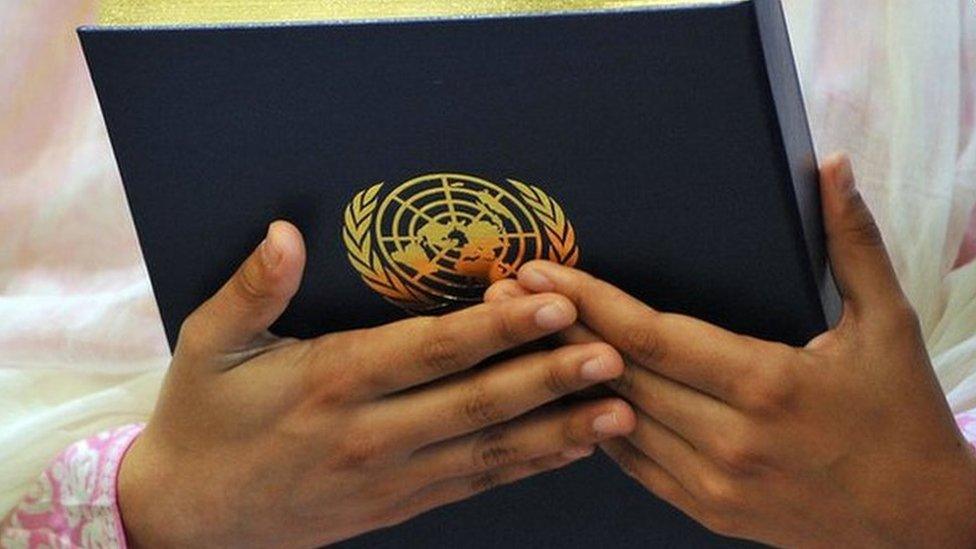Syria air strikes: US still 'locked and loaded' for new chemical attacks
- Published
How the Western attacks on Syria's suspected chemical weapons sites unfolded
President Donald Trump has warned Syria's government the US is "locked and loaded" to strike again if it carries out chemical attacks.
The warning came after the US, UK and France struck three Syrian sites in response to a suspected deadly chemical attack in the town of Douma a week ago.
Syria denies any chemical use and says that attack was fabricated by rebels.
A UN Security Council vote brought by Syria's ally, Russia, to condemn the US-led strikes was rejected.
The wave of strikes represents the most significant attack against President Bashar al-Assad's government by Western powers in seven years of Syria's civil war.
While Western powers have supported rebels from early on in the war, they have not intervened directly against Syrian government forces.

Catch up on the strikes:

After the failure of the Russian motion, the US, UK and France circulated a new draft resolution to UN Security Council members, calling for an independent investigation into Syria's alleged use of chemical weapons, AFP news agency reported.
Similar previous plans have been vetoed by Russia.
UK Prime Minister Theresa May has blamed Russian obstruction for the need to launch military strikes, saying they left "no practicable alternative".
Syria air strikes: Do they work?
Isn't an investigation already under way?
Inspectors from the independent Organisation for the Prohibition of Chemical Weapons (OPCW) had already been dispatched to Damascus and they are expected to visit Douma this weekend.
But the OPCW will not seek to establish - and publicly announce - who was responsible for the attack, which is what the UK, US and France want to see.
The new, Western-drafted resolution calls for the OPCW to release their report within 30 days.
Syria's Assistant Foreign Minister Ayman Sousan told the BBC his government welcomed the OPCW delegation.
"The work of the mission is in the interest of the Syrian state as it will uncover the lies, hypocrisy and the misinformation of the sides which had promoted the alleged use of chemical weapons," he said.
British Foreign Secretary Boris Johnson told the BBC the strikes in Syria were meant to signal that "enough is enough" and their "primary purpose is to say no to the use of barbaric chemical weapons".
What happened at the UN?
An emergency meeting was held by the UN Security Council on Saturday, leading to some bitter exchanges.
Russia sought to secure a collective condemnation of the early morning air strikes.
However, out of the 15-member council, only China and Bolivia voted in favour of the Russian resolution.
Russia's UN envoy, Vasily Nebenzia, read out a quote from President Vladimir Putin accusing the US, UK and France of "cynical disdain" in acting without waiting for the OPCW's findings.
US envoy Nikki Haley said she had spoken to President Trump: "And he said: 'If the Syrian regime uses this poisonous gas again, the United States is locked and loaded.'"
She added: "We cannot stand by and let Russia trash every international norm and allow use of chemical weapons to go unanswered."
Syrian envoy Bashar Jaafari called the US, UK and France "liars, spoilers and hypocrites" who exploited the UN "to pursue... [their] policy of interference and colonialism".

The future of the Syrian war:

What is happening on the ground?
CBS News reporter Seth Doane visited one of the targets in Damascus on Saturday afternoon, and found it to be a smouldering pile of rubble.
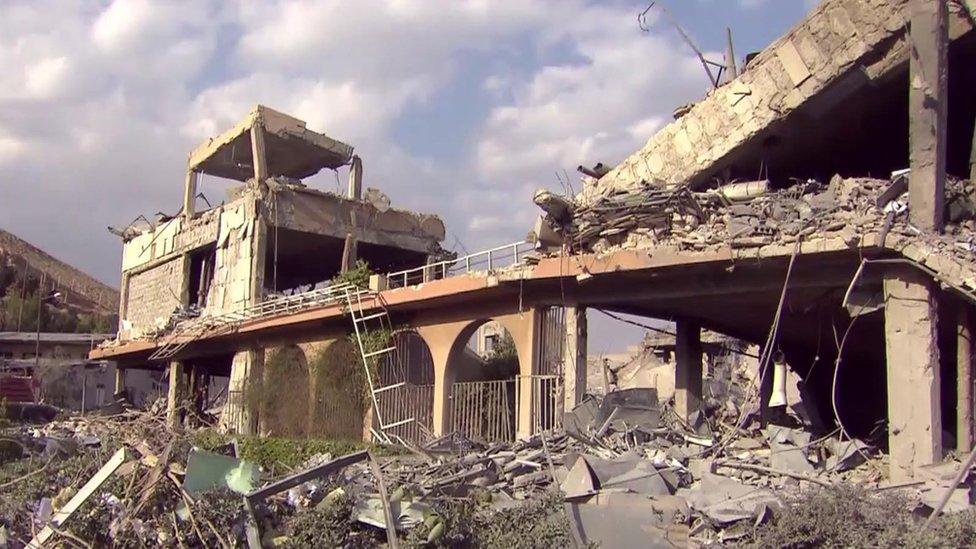
The Barzeh complex appears to be totally destroyed
The Barzeh complex is, according to the US, a centre for development, production and testing of chemical and biological weapons. Syria denies this.
Elsewhere, the Syrian army announced on Saturday that the Eastern Ghouta region, where Douma is situated, had been cleared of the last rebel fighters and was fully retaken.

What has Donald Trump said?
He tweeted early on Saturday, hailing the strikes as "perfectly executed". He also thanked the UK and France.
Allow X content?
This article contains content provided by X. We ask for your permission before anything is loaded, as they may be using cookies and other technologies. You may want to read X’s cookie policy, external and privacy policy, external before accepting. To view this content choose ‘accept and continue’.
His use of the phrase "Mission Accomplished" drew a warning from President George W Bush's ex-press secretary Ari Fleischer:
Allow X content?
This article contains content provided by X. We ask for your permission before anything is loaded, as they may be using cookies and other technologies. You may want to read X’s cookie policy, external and privacy policy, external before accepting. To view this content choose ‘accept and continue’.

The phrase had been on a banner as Mr Bush declared the end of "major combat operations" in Iraq in May 2003, six weeks after the US-led invasion of the country. The following Iraqi insurgency questioned the validity of the statement.
At a Pentagon briefing on Saturday, Lt Gen Kenneth McKenzie listed the three targets that had been struck, saying the attacks had "set the Syrian chemical weapons programme back years".
Gen Kenneth McKenzie: "We deployed 105 weapons"
Gen McKenzie said about 40 Syrian defence missiles were fired, mostly after the targets were hit, and none successfully engaged planes or missiles.
The Pentagon briefing contradicted information given at a Russian defence ministry briefing, which said 103 cruise missiles had been launched and 71 were shot down by Syrian systems.
Both the Russians and the US said there were no reported casualties. Syria says three people were hurt near Homs.


The US said it had communicated with Russia ahead of the strikes through the normal procedures of their "deconfliction" hotline, but no details of the attacks were given.
There had been concerns that if the allied strikes had hit Russian military personnel, it would have further escalated tension.
The US says the scale of the strikes was about "double" what was launched in April 2017 after a chemical attack on the town of Khan Sheikhoun that killed more than 80 people.

- Published16 April 2018
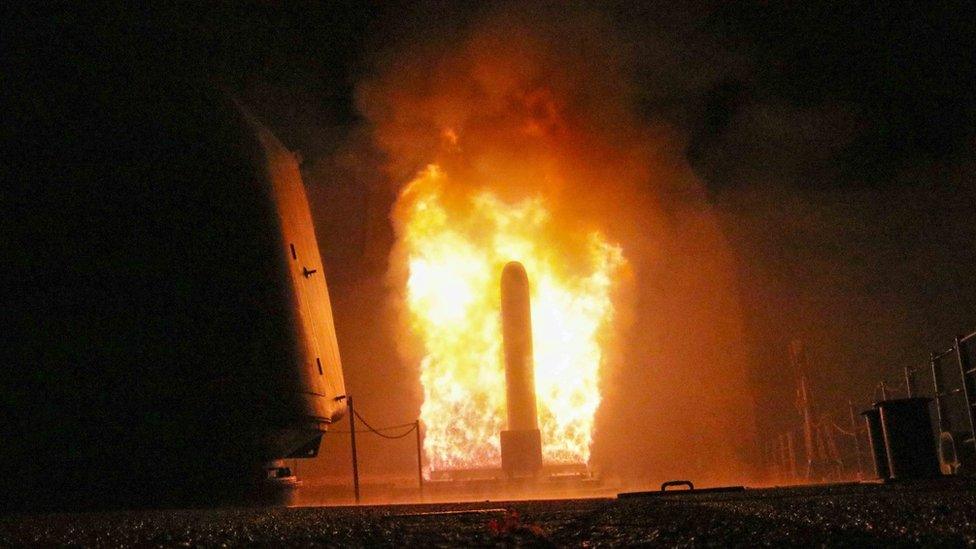
- Published14 April 2018
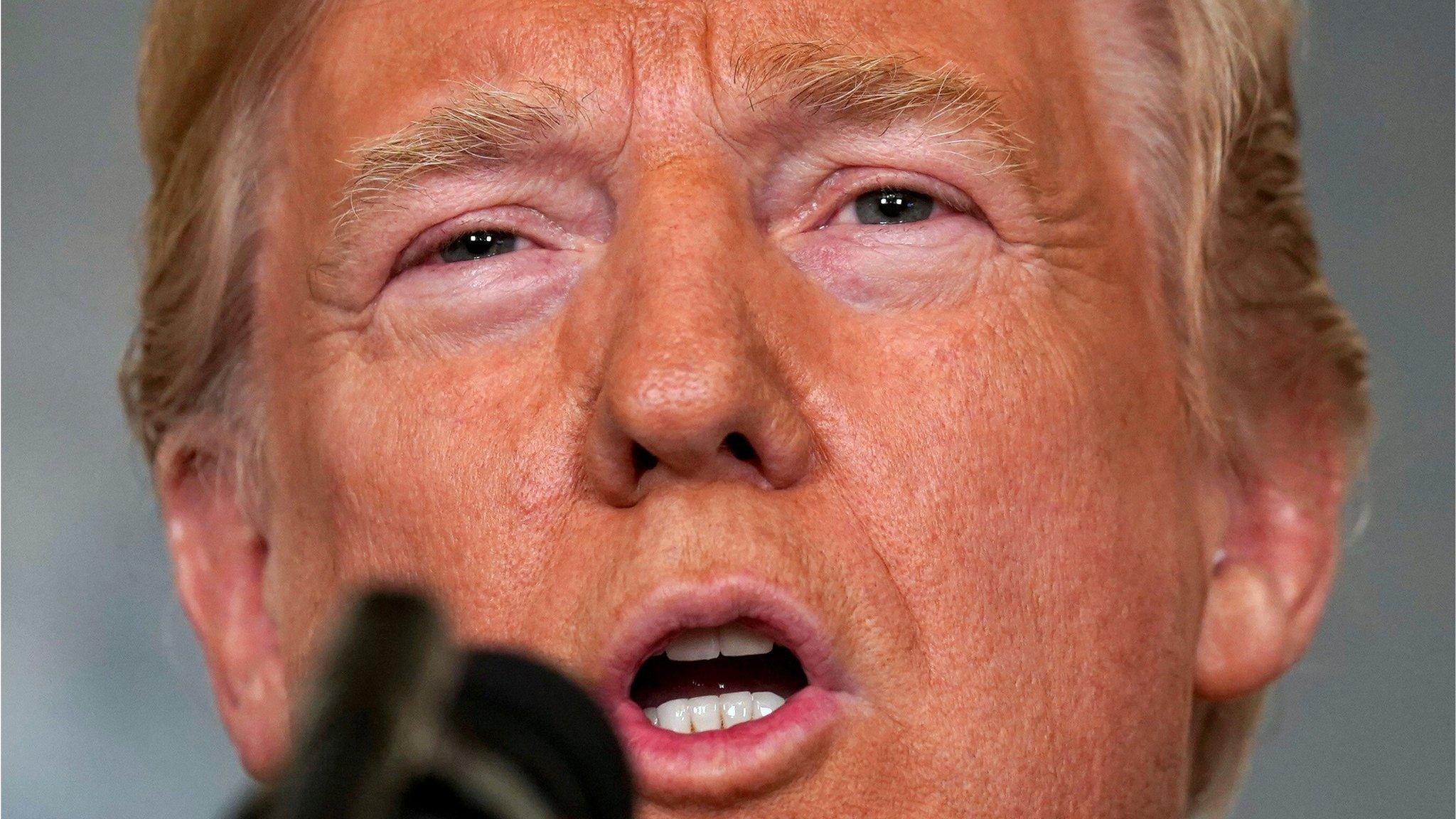
- Published14 April 2018
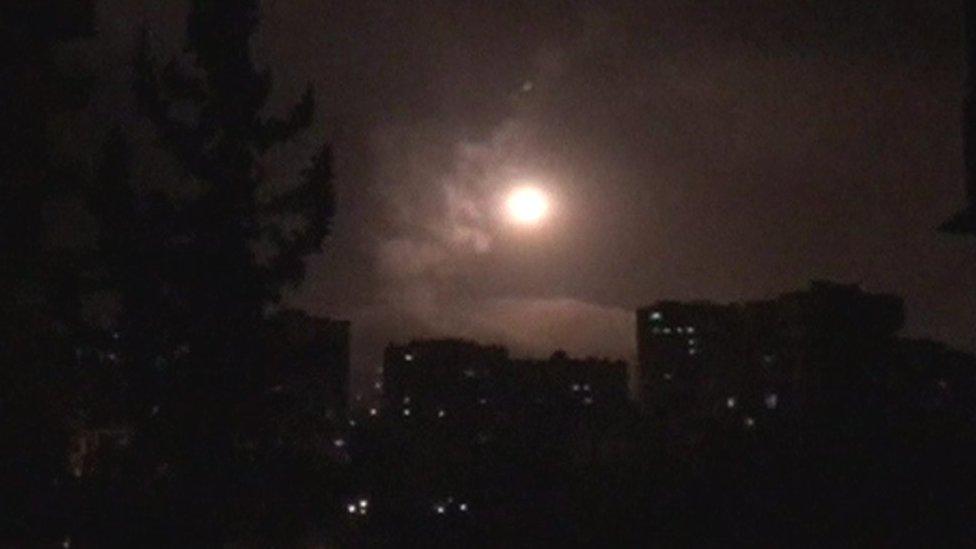
- Published14 April 2018
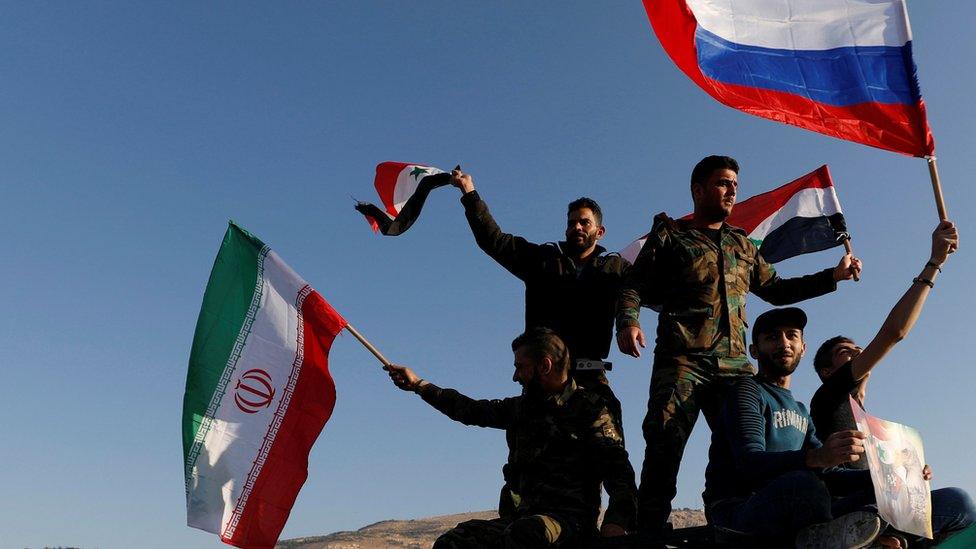
- Published14 April 2018
- Published10 July 2018
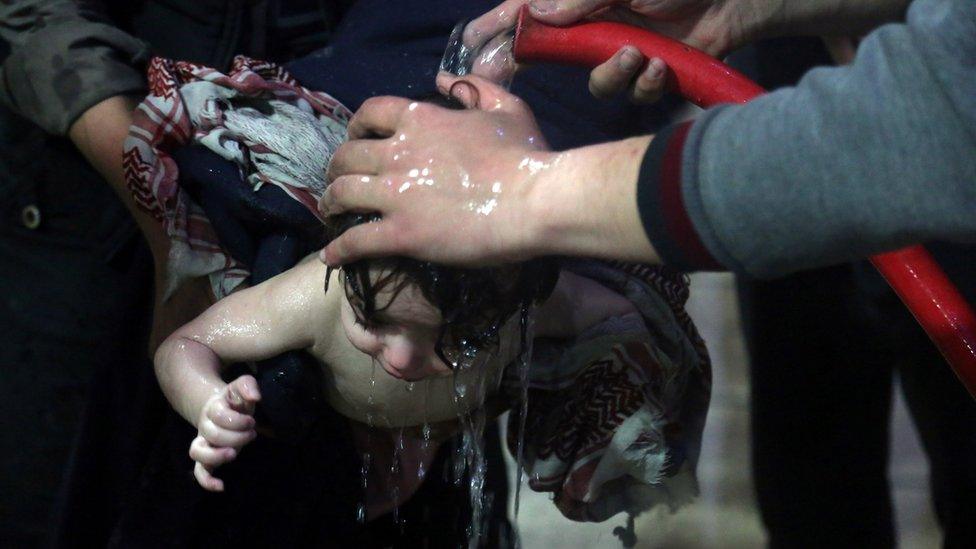
- Published14 April 2018
